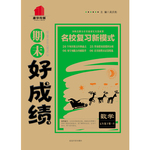题目内容
-------What do you suppose made him so unhappy?
------- ________ his wallet.
A. Losing B. Lost C. lose D. To lose
A
【解析】
试题分析:考查非谓语动词 。句意:你认为什么让他不高兴?丢钱包了。What在句子中做主语,只有动名词可做主语,故选A项。
考点 : 考查非谓语动词

练习册系列答案
 期末好成绩系列答案
期末好成绩系列答案 99加1领先期末特训卷系列答案
99加1领先期末特训卷系列答案 百强名校期末冲刺100分系列答案
百强名校期末冲刺100分系列答案 好成绩1加1期末冲刺100分系列答案
好成绩1加1期末冲刺100分系列答案 金状元绩优好卷系列答案
金状元绩优好卷系列答案
相关题目